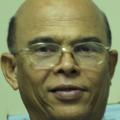John Yettaw, in doubtful health, was sentenced on 11 August to seven years of hard labor for an unwise and ill-fated visit he had paid to Burma's Nobel laureate, the charismatic democracy leader, Aung San Suu Kyi. His swim to her residence in May caused the Lady additional 18-month of house-arrest.
Following the sentencing, things unfolded just like a drama, when suddenly the US Senatorr. Jim Webb, a Virginia Democrat, appeared as a savior, visited Burma, and negotiated with the country's military Head of State, Senior Gen. Than Shwe, to obtain the release of Yettaw, pointing out that he needs medical care.
More importantly it is doubted that the Democrat Senators Webb's visit may be to broaden U.S. relation with Burma or may be to take part as a fact-finding mission in making a new Burma-policy. Senator Webb is known for his strong criticism of the US administration's Burma sanctions, arguing that isolating Burma has strengthened China's grip, weakened US influence and done nothing to improve the junta's behavior. But, it has to be pointed out that Senator Webb must not ignore the political aspirations of the pro-democracy groups of Burma.
Burmese pro-democracy groups have questioned the timing of Senator Webb's visit and warned him not to become a tool of the ruling regime. ├ éČ┼"We are concerned that the military regime will manipulate and exploit your visit and propagandize that you endorse the trial of Daw Aung San Suu Kyi and the imprisonment of over 2,100 political prisoners,├ éČ Ł said a joint statement sent to the US embassy in Rangoon by the All Burma Monks Alliance, 88 Generation Students and All Burma Federation of Student Unions.
Burma is on the brink of a fresh civil strife, as a great number of population including younger generations have articulated dissatisfaction about the most unfair trial of Aung San Suu Kyi. The intolerant citizens have called for a nation-wide general strike to bring down the deep-rooted stratocracy in Burma, due to the junta's insistence of barring the Lady to participate in the country's political reform process.
In fact, the junta should come forward to release Daw Aung San Suu Kyi from detention immediately, because the junta always claimed that no one is above the law. The law says that the duration of such restriction shall be kept to a minimum. The whole world is concerned about Suu Kyi's detention and has called on the junta to bring the situation back to normal.
The incumbent Burmese junta has also committed series of blunders in dealing with political issues. It will face a bleak future if it continues to overlook the national reconciliation process urged by the key opposition groups of the National League for Democracy and the United Nationalities Alliance.
The NLD and UNA pointed out that the current ratification of the 2008 Constitution is invalid, since it was conducted against the will of the people and amid a lack of international norms. The junta also shows no respect toward the Presidential Statement of the U.N. Security Council, issued in October 2007 and has neglected the consecutive resolutions adopted by the U.N. General Assembly.
Although the military regime has expressed its goals, as stability, national reconciliation and democracy, its repressive stance on oppositions continues to be anti-people move. Even peaceful prayer-sessions in pursuit of the Lady's freedom were cruelly attacked by the junta's thugs. Hence, the upcoming election ├ éČ" the first in 20 years ├ éČ" will not be inclusive, participatory and transparent and seems to be highly a treacherous move.
Burmese generals' way forward become visible. Their practices are being rooted in disrespect for human rights. As a result, political prisoners who stand on principle, including Daw Aung San Suu Kyi, may not have the chance to be released on or before 2010.
According to prison-sources, the military authorities are pressing the political prisoners to meet some screening processes or exams in their respective jails. The key questions are how they think of the 2008 constitution and what will be their opinion if the authorities allowed them to participate as candidates in 2010 elections. It seems that the junta is thrusting wedge among the political dissidents, especially in the NLDs.
It appears that the junta has no plan of releasing majority of the 2,100-plus political prisoners, if they refused to dance with their tunes and embarking on a tripartite dialogue with the junta, the democratic forces led by Aung San Suu Kyi, and representatives of ethnic nationalities, as has been called repeatedly by the U.N. General Assembly.
While in his recent trip to Burma, the U.N. Secretary-General Ban Ki-moon revealed his suggestion to Senior General Than Shwe. Ban Ki-moon in a press briefing in Bangkok, after his July 3-4 visit to Rangoon.
├ éČ┼"I told Senior General Than Shwe that Daw Aung San Suu Kyi and all political prisoners should be released without delay and allowed to participate freely in the political process. I said I wanted to see resumption of substantive and time-bound dialogue between the government and Aung San Suu Kyi and her National League for Democracy at the higher level of engagement. I set out detailed criteria for a conducive environment for free and fair elections in 2010. Only then will the elections be seen as credible and legitimate.├ éČ Ł
During his two-day visit, Ban met twice with Than Shwe at the new capital Naypyidaw, but unfortunately he was refused permission to visit Aung San Suu Kyi. Ban's requests for the release of political prisoners and the resumption of dialogue toward reconciliation with the political opposition were also adamantly declined.
The U.N. chief expressed his disappointment, saying the Burmese regime failed to take an opportunity to prove a new era of political openness.
(Note: You can view every article as one long page if you sign up as an Advocate Member, or higher).





